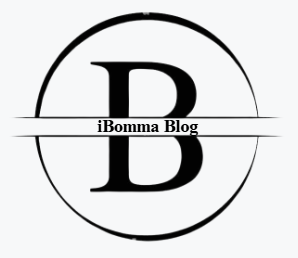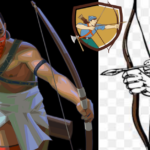Introduction to the New York Times Crossword Puzzle
The New York Times Crossword Puzzle is more than just a game; it’s a daily ritual for many. With its clever clues and challenging grids, it attracts puzzle enthusiasts from all walks of life. Whether you’re a seasoned pro or just starting to dip your toes into the world of crosswords, you know one thing: finding that perfect answer can be incredibly satisfying.
But what happens when you hit a wall? When “Record Book NYT Crossword Clue” stumps you? Fear not! There are strategies and resources available that can turn frustration into triumph. Let’s explore how record books can elevate your crossword-solving skills while giving those tricky clues the attention they deserve. Grab your pencil and get ready to dive in.
The Importance of Record Books in Solving Clues
Record books serve as essential tools for crossword enthusiasts. They compile patterns, answers, and trivia that can unlock complex clues. Having a dedicated record book enhances your ability to recognize recurring themes or phrases.
These volumes often contain previously solved puzzles, making it easier to reference past knowledge. When faced with the daunting “Record Book NYT Crossword Clue,” flipping through your notes might spark a connection you hadn’t considered before.
Additionally, keeping track of words and their contexts in different puzzles helps build your vocabulary. You’ll notice how certain terms appear frequently across various editions of the New York Times Crossword.
Moreover, these records can provide insight into puzzle creators’ styles. Understanding their preferences will give you a leg up when tackling new challenges while expanding your overall problem-solving skills.
Strategies for Solving Crossword Clues
When tackling crossword clues, start by reading the entire grid. It gives context and helps you visualize connections between answers.
Next, focus on the easy clues first. Filling in these will provide letters for trickier ones. Every letter counts.
Pay attention to wordplay or puns in clues. Often, they lead you down a different path than expected. Embrace lateral thinking; it can reveal surprising solutions.
Also, consider common themes or patterns that arise within puzzles. Familiarity with commonly used phrases enhances your chances of success.
Don’t hesitate to use pencil instead of pen! This allows flexibility as thoughts evolve while solving.
If you’re stuck, take a break—clear your mind before returning with fresh eyes ready to tackle those elusive words again.
How to Use Record Books to Solve the NYT Crossword Puzzle
Record books can be invaluable tools for tackling the NYT Crossword Puzzle. Start by identifying common themes and categories within your record book. This will help you spot potential answers quickly.
When a clue mentions specific historical figures, events, or titles, consult your record book to find relevant entries. You might discover names or terms that fit perfectly into the puzzle grid.
Don’t forget to jot down any recurring clues you encounter in different puzzles. Over time, these patterns can enhance your problem-solving efficiency.
Additionally, leverage indexes or tables of contents in record books for swift navigation. This strategy saves precious minutes when you’re racing against the clock.
Consider integrating digital versions of record books alongside traditional ones for more updated information and accessibility on-the-go. The combination enhances both speed and accuracy while solving those tricky crossword clues.
Examples of Record Book Crossword Clue Solutions
When tackling the Record Book NYT Crossword Clue, you might encounter some fascinating examples that will sharpen your skills.
Consider a clue like “Annual bests.” The answer might be “records,” referring to achievements noted in various record books. It’s straightforward yet requires lateral thinking.
Another example could be “Guinness entries.” This likely points to “world records,” showcasing feats documented by the famous Guinness World Records publication.
You might even see clues about specific sports records, such as “Fastest marathon time” leading you to answers like “Eliud Kipchoge” or simply “marathon.”
These examples highlight how diverse and intriguing crossword clues can be. Keeping a keen eye on context is essential for cracking these puzzles efficiently. Each solution not only enriches your vocabulary but also enhances your enjoyment of the game.
Other Helpful Resources for Solving Crossword Puzzles
For crossword enthusiasts, numerous resources can enhance your solving skills. Online platforms like Crossword Nexus and Wordplays offer tools that help decode tricky clues.
Mobile apps are another excellent option. Applications such as NYT Crossword itself or other puzzle games provide daily challenges and hints to sharpen your abilities.
Social media groups can foster community engagement. Joining forums on Reddit or dedicated Facebook pages allows you to exchange tips, share experiences, and ask for assistance when you’re stuck.
Books about crossword strategies also make a great addition to any solver’s library. They delve into techniques that experienced players use to tackle even the most challenging puzzles.
Local libraries often host crossword clubs where fans gather to solve together. It’s a fun way to meet new people while improving your skills in a supportive environment.
Conclusion
The New York Times Crossword Puzzle offers a delightful challenge to word enthusiasts and casual solvers alike. With clues that can range from straightforward to perplexing, having the right resources becomes crucial for success. Record books play an essential role in this process, allowing players to track answers and learn from past puzzles.
Using strategies such as filling in what you know first or working on the easier clues can set you on the right path. Incorporating record books into your routine not only aids in remembering solutions but also enhances your puzzle-solving skills over time.
As you tackle those tricky “Record Book NYT Crossword Clue” challenges, remember that practice makes perfect. Exploring related resources will further strengthen your abilities and keep crossword nights invigorating.
With patience and persistence, you’ll find yourself navigating even the most challenging crosswords with confidence. Keep honing those skills and enjoy every moment spent solving!






